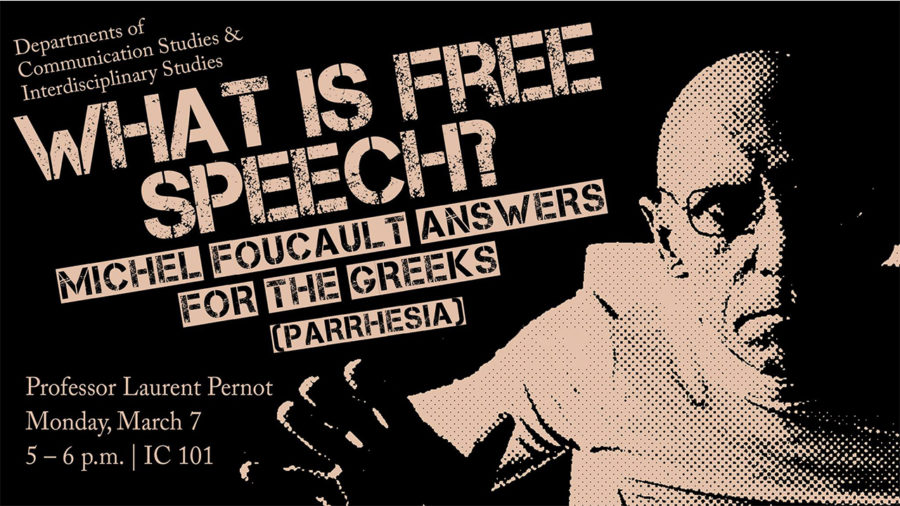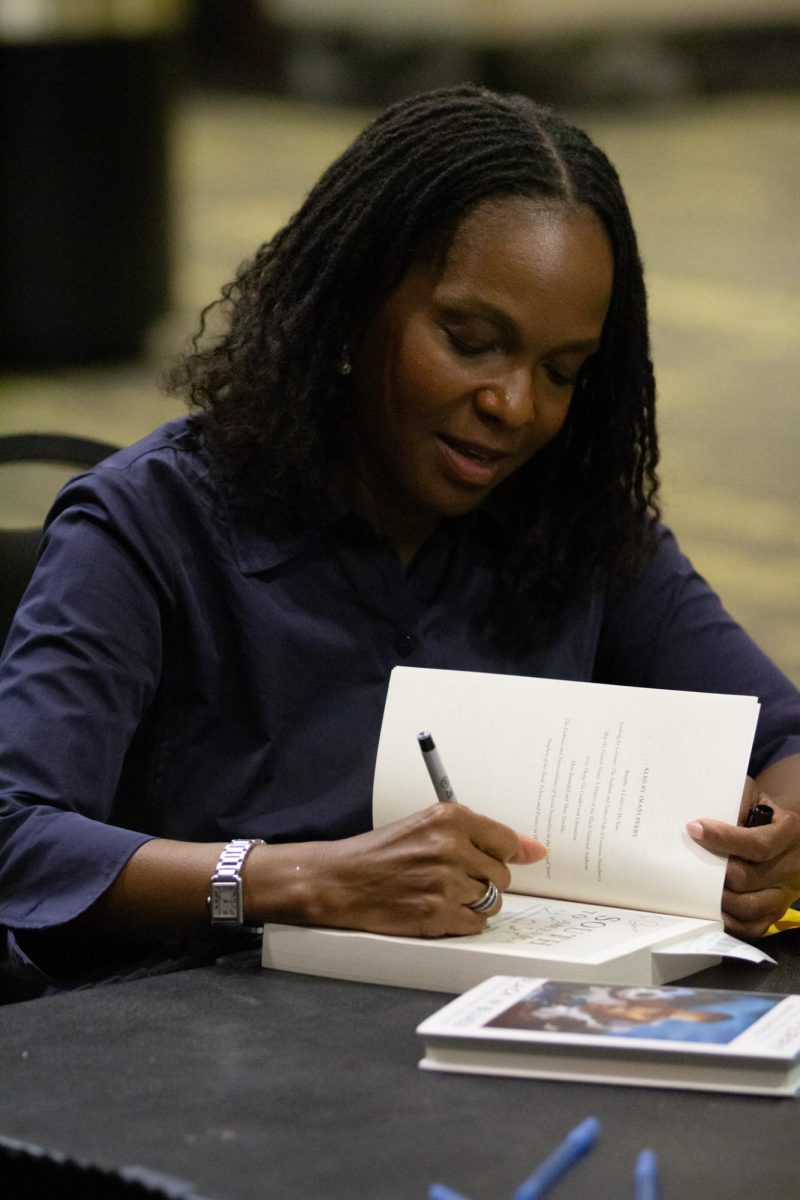The Department of Interdisciplinary Studies and the Department of Communication Studies welcomed scholar Laurent Pernot to address free speech in an on-campus lecture titled, “What is Free Speech: Michel Foucault Answers for the Greeks” on March 7.
Pernot’s work includes analyzing how ancient civilizations’ ideas of free speech relate to the language used today. He served as a former president of the International Society for the History of Rhetoric, executive editor of the book series “International Studies in the History of Rhetoric” and most notably a member of the Académie des Inscriptions et Belles Lettres, one of the five academies of the Institut de France.
“I found this audience particularly receptive it was a wonderful experience here in Hattiesburg at USM the audience was very reactive the questions were very interesting,” Pernot said.
Rebecca Holder, an English doctoral student, said the lecture gave her new ideas about the concept of freedom speech.
“I was really intrigued by the dual concept of parrhesia and thinking of freedom of speech in the way we conceive of it as a constitutional right and the speaking freely in the concept of speaking truthfully in individual spiritual guidance,” Holder said.
Pernot described parrhesia as the democratic concept of freedom of speech.
“I think that what he demonstrated was that Foucult sees that there’s an ethical underpinning to the concept of thinking freely and that our freedom of speech comes with a responsibility to speak truthfully as well,” Holder said.
Jameela Lares, professor of English, has known Pernot for 25 years working in the history of rhetoric.
“I knew that his work was cutting edge and that he’s had a lot to say to anybody in America,” Lares said. “He’s very interested in the United States, and he sees it as a real important part of the world an important part of the intellectual world.”
Many students asked Pernot how his ideals of speech related to the candidates during the event’s closing questions.
Lares said it was inevitable for people to think about the election though Pernot said that was not his direct intention.
“We are trying to reflect in a rational historical way,” Pernot said. “There’s a feedback the implications exist. I think my job is not speaking of this. The students should by themselves apply what they hear to the current situation if they wish it’s not necessary it is their freedom.”
Students heard more of Pernot’s findings on March 4 during the lecture “Rhetoric for Ancient Philosophy: Plato, Aristotle, and Marcus Aurelius” Presented by the Philosophical Fridays lecture series and again on March 8 during “To Speak, Saying Nothing? The Unknown Benefits of Ceremonial Praise” sponsored by the USM Honors College.
Pernot’s discussions introduced new ideas to students.
“I really appreciated his lecture,” Holder said. “I think he made a lot of connections between antiquities and the rhetoric that we use today in ways that are helpful to my own studies.”
























